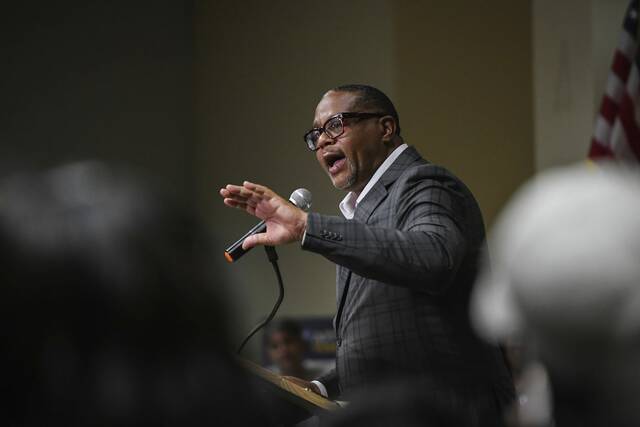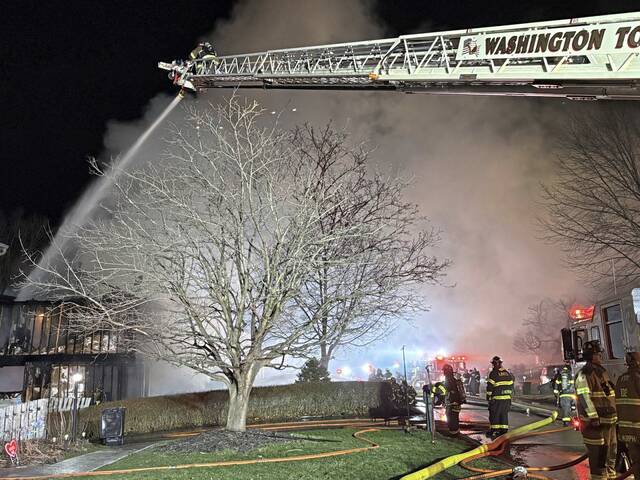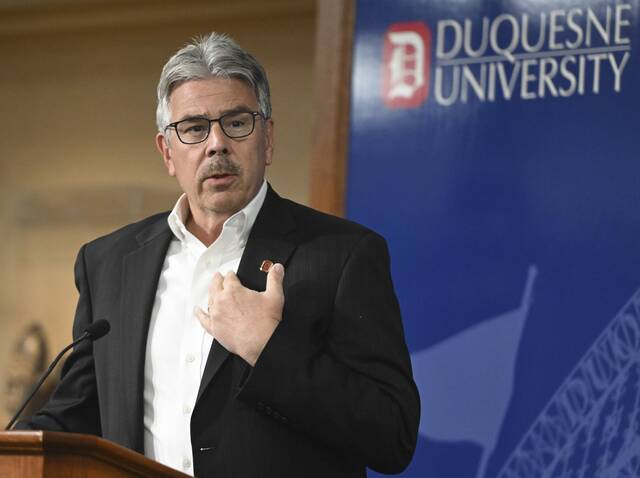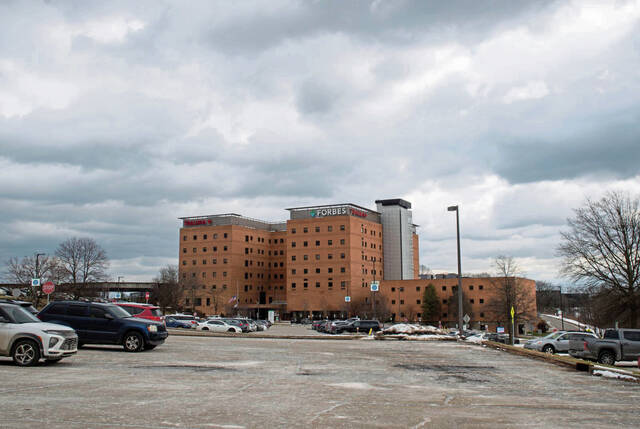Lame-duck Pittsburgh Mayor Ed Gainey faces a stark choice in his remaining seven months in office: Ramp up efforts to push his passion projects across the finish line — or while away the final days of his single term.
On Tuesday, Gainey lost the Democratic primary to Corey O’Connor, virtually guaranteeing the challenger a glide path to city hall in November, courtesy of Democrats’ overwhelming dominance in Pittsburgh.
Whether the city sees stalemate or significant progress in the coming months will likely depend on Gainey’s initiative – and the willingness of City Council members to strike compromises with an incumbent most of them did not support.
Berwood Yost, an expert on political campaigns at Franklin & Marshall College, believes concerns about lasting public image might factor into Gainey deciding to act rather than sit back.
“I think any executive wants to be remembered for a positive contribution, and so I don’t see any reason why the mayor wouldn’t think about trying to leave a legacy,” Yost said. “That’s where there’s room, perhaps, for something to happen, so you don’t have a year of nothing getting done. That’s what opens the room for compromise.”
But Alison Dagnes, a political science professor at Shippensburg University, isn’t so sure.
After an incumbent loses a reelection campaign, sometimes there’s little motivation to do more, Dagnes said.
“There’s no incentive for the outgoing mayor to get anything done,” she said. “There’s really nothing the incoming mayor can actually do, which means everybody’s going to have to keep their powder dry and just wait it out.”
Council’s role
Gainey’s plans for the city as his single term winds down are hard to discern. The mayor wasn’t making himself available for interviews following his defeat, and a spokesperson declined comment.
What is certain: Council will play a key role in whether the mayor can get things done. Five of nine members endorsed O’Connor.
Those divisions became increasingly obvious over the past year or so. Once, a united council rubber-stamped most of Gainey’s proposals. As the primary approached, though, members increasingly began pushing back.
When Gainey tapped his most recent police chief candidate, hoping to steady a bureau with a leadership vacuum, some members called for an expanded public process before voting on the nominee. The candidate eventually withdrew from the running and retired, leaving the rudderless police bureau in the hands of yet another acting chief.
A zoning package that Gainey had hoped would pave the way for more affordable housing — and become a signature policy for an administration passionate about housing — has not even been formally introduced to council. Competing legislation on the table has left no clear route forward.
Despite those snags, Yost thinks the divisions can be smoothed over.
“It’s not like it’s a Republican council,” Yost said. “This is an opportunity for Democrats to say, ‘Hey, we run this city, we need to make some progress so people understand what we stand for.’ ”
Councilwoman Erika Strassburger, D-Squirrel Hill, often plays a diplomatic role at the council table.
She’s hoping everyone can come together to strike compromises and deliver meaningful improvements for residents.
“Anything the mayor wants to propose, I’m here to work with him if it’s something I agree on inherently and if it’s for the betterment of the city,” said Strassburger, who endorsed O’Connor but largely refrained from the harsh criticisms of Gainey some other council members made regularly.
For months, she’s been trying to broker a compromise on the contentious zoning packages that have divided council members, housing advocates and the public. Strassburger said she’s continuing those efforts, regardless of the election. While a resolution has proven elusive. Strassburger still believes there could be a “middle ground” to earn council approval and help low- and middle-income Pittsburghers find housing they can afford.
What’s best for Pittsburgh
Councilwoman Barb Warwick, D-Greenfield, is a vocal Gainey supporter who clashed with some of her colleagues in the run-up to the election. She accused some of them of helping to sink Gainey’s choice for police chief.
Warwick said she was disappointed in the election results but willing to work with council’s O’Connor faction because that’s what’s best for the city.
“As far as City Council and operations at the city, we’re all professionals, in theory, and so of course that’s how politics works. You win some, you lose some,” Warwick said. “We will all move forward and continue working together, as you do. But I don’t know if the spirit of unity is why we need to do that, more than just continuing to do the outstanding work that has been done over the last three years.”
Warwick remains hopeful that Gainey’s zoning bill, for which she remains a staunch advocate, could come to fruition.
“If your values are that Pittsburgh should be a city that is affordable and inclusive of all people, of all economic means, then that is something you will continue to work on. And if that isn’t a top priority for you, I don’t know if anything’s going to change on that,” she said. “For me, that is a very important aspect for the future of Pittsburgh.”
It doesn’t seem everyone is motivated to make major moves during Gainey’s remaining time in office.
“At this point, the next several months, I don’t care,” said Councilman Anthony Coghill, D-Beechview, a strong O’Connor supporter. “Status quo is fine with me.”
When asked about potential compromises on Gainey’s zoning proposal, Coghill replied, “Heck no.”
“That thing was a disaster from the beginning,” he said. “I hope that’s put to rest.”
He’s not interested in considering any more police chief nominations from Gainey, either.
“The next mayor should put the chief up, not this mayor,” said Coghill, who serves as council’s public safety chair. “We’ve not had much success with that with this mayor.”
Council members Bobby Wilson, D-North Side, and Theresa Kail-Smith, D-West End, both O’Connor supporters, similarly said they think it’s for the next mayor to select the next police chief.
Kail-Smith has repeatedly called on officials to keep politics out of public safety matters. On Wednesday, she reiterated her concerns about politicizing the police chief position — but also about the impact of a lame-duck mayor. The police bureau needs stability, Kail-Smith said, “and I don’t think they’re going to have that if you have a mayor that’s leaving in a few months.”
Wilson said there’s room to work with Gainey elsewhere. “I think there’s a lot of things we can agree on, and there can be a good compromise in terms of what this budget looks like,” Wilson said.
The incoming mayor, whether O’Connor or his Republican rival, Tony Moreno, will inherit a Gainey administration-crafted budget for next year. Council will have an important say: It must approve the 2026 spending plan before a new mayor takes office.
Holding the power
Chris Borick, a political science professor at Muhlenburg College, said some incumbents have undertaken “significant action” during their lame duck periods (he called Gainey’s “excessively long”). Others don’t get much done.
Either way, Borick said, there will be an inclination to look beyond Gainey and start thinking about what the next administration will do.
But until the next mayor is sworn in, Gainey is the one who holds formal power.
“That’s real,” Borick said.
And Gainey could still use that power to move his agenda forward.
“There’s some opportunity to get things done without the pressure of a re-election, but also the reality that people are looking past what’s in office now to what will come,” he said.
If O’Connor wins the general election, he’ll bring different plans to Grant Street on key issues affecting housing, spending and Pittsburgh’s nonprofits.
Where Gainey has pitched a citywide mandate requiring large new housing developments to earmark some units for affordable housing, O’Connor has suggested a neighborhood-by-neighborhood approach. O’Connor has proposed scaling back city spending, including in the mayor’s office, which Gainey has expanded under his tenure. And O’Connor wants to use a softer touch than Gainey in coaxing the city’s major nonprofits, which are not taxed, to contribute to funding city services. The mayor has gone after them in court.
Some of the things O’Connor criticized about Gainey — like how he spent some of the city’s federal covid-19 relief money and his decision to give an outside firm $6 million to launch a citywide planning study — are already done. O’Connor couldn’t reverse them as mayor, even if he wanted to.
During past mayoral transitions, Kail-Smith said, council members have sometimes sought input from the Democratic nominee before he takes office. She said she and other council members — making the assumption that O’Connor will win in November — will likely look to collaborate with him before that to smooth the transition.
A ‘great story’
Dagnes, the Shippensburg professor, said if Gainey wants to cement a positive legacy, he should look for wins Pittsburghers would welcome.
“If he’s concerned with his legacy, then the smart thing for him to do is lick his wounds in private and in public say he’s going to be the best soon-to-be-ex-mayor in the city and just knock out everything he wanted to get done and make it really popular stuff,” Dagnes said. “If he can do that, he’s setting himself up for the next thing.”
Already, the Gainey narrative is one that many find inspiring.
Gainey was raised by a single mother and lived in low-income housing. He rose in politics, first as a state legislator and then ascending to the most powerful public office in Pittsburgh as the city’s first Black mayor.
“It’s a great story,” Yost said. And it’s not necessarily over, he added. “Every election, we sort of spot analyze, and we have to remember that political fortunes change,” Yost said. “Whether it was Donald Trump after Jan. 6 or Joe Biden after 2016, political fortunes change.”
For Sam Hens-Greco, the Allegheny County Democratic Committee chair, it’s important to reunite the party after a divisive primary that spread misinformation about both candidates.
“It’s not unusual,” Hens-Greco said. “Primaries are tough battles, because they’re Democrat against Democrat. The heat of the moment and the emotions of today, folks have to have some time to process that, to move on.”
The committee, he said, will try to remind people of the party’s shared goals and ideals.
“The people have voted, they made a selection, and now let’s move forward,” he said.
Strassburger worries that might be harder these days than in the past. Losing an election or absorbing a rival’s sharp criticisms is always tough for politicians, Strassburger noted.
But this year seems different to her.
Some campaign supporters have been taking criticisms — and Gainey’s loss generally — as personally as the candidates themselves, making it tougher to mend fences within the party, Strassburger said.
Social media allows misinformation to spread rapidly, she noted.
And she feels negative messaging — particularly from independent groups that operate outside the campaigns themselves — has become particularly bitter.
Strassburger said she’s not sure how to remedy those issues. That said, she’s looking to bring everyone back to the table, make sure her constituents feel heard and find ways to work with council members who backed Gainey. She’s planning in-person meetings with council members, community leaders and residents to personally talk about the path forward.
While Strassburger said she wants to help reunite the city, she also said it’s important for voters to hear different ideas during elections and to leave room for disagreement.
“Under a large tent, there are going to be differences in opinion. There’s going to be tension,” she said. “It’s healthy.”








